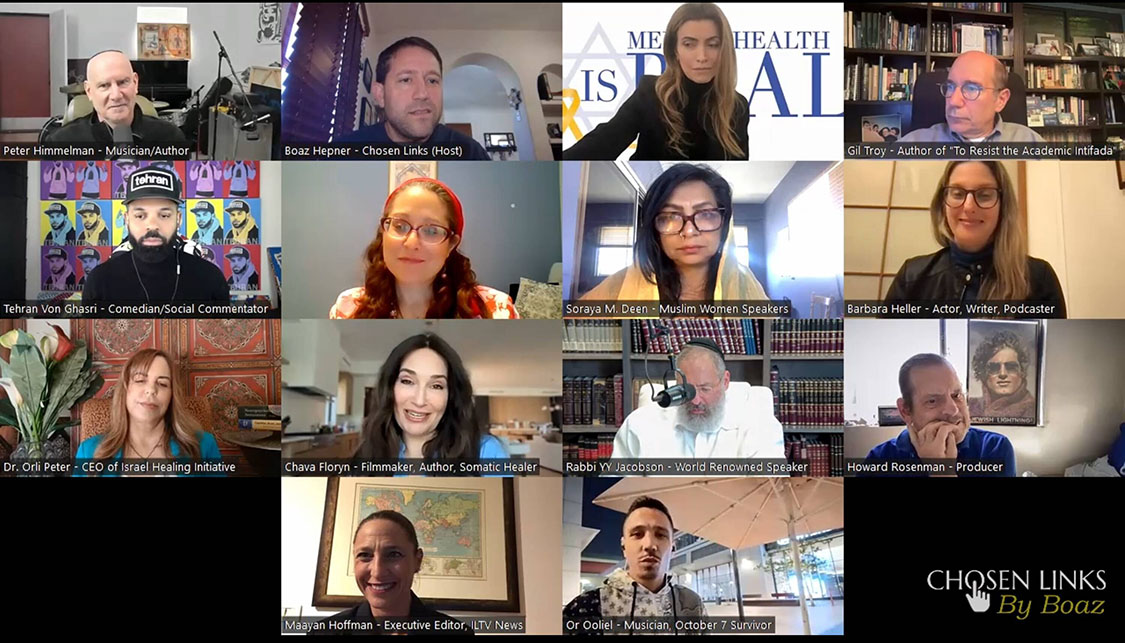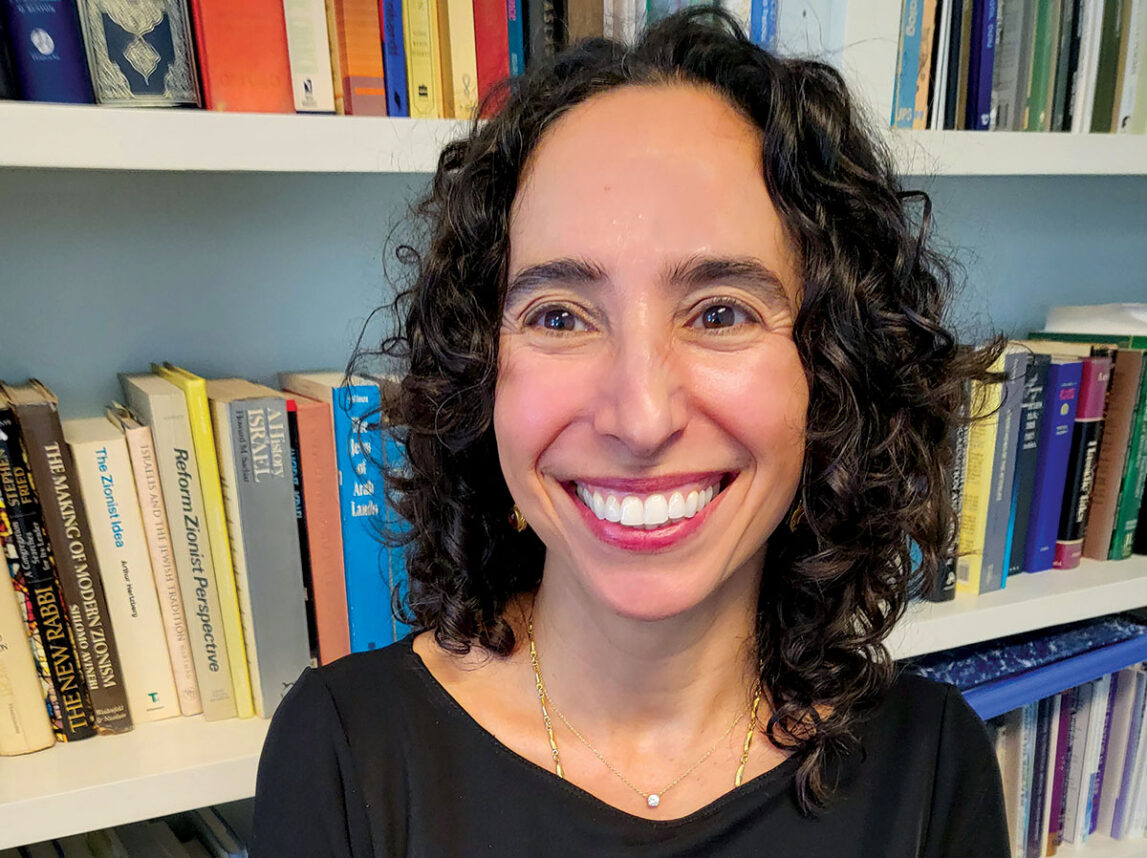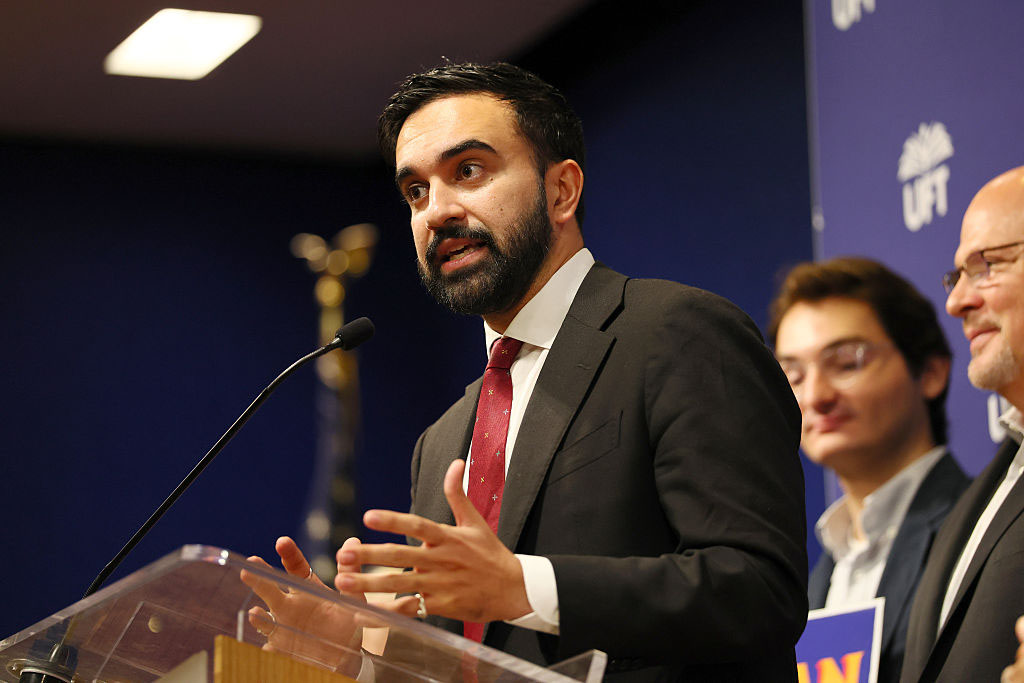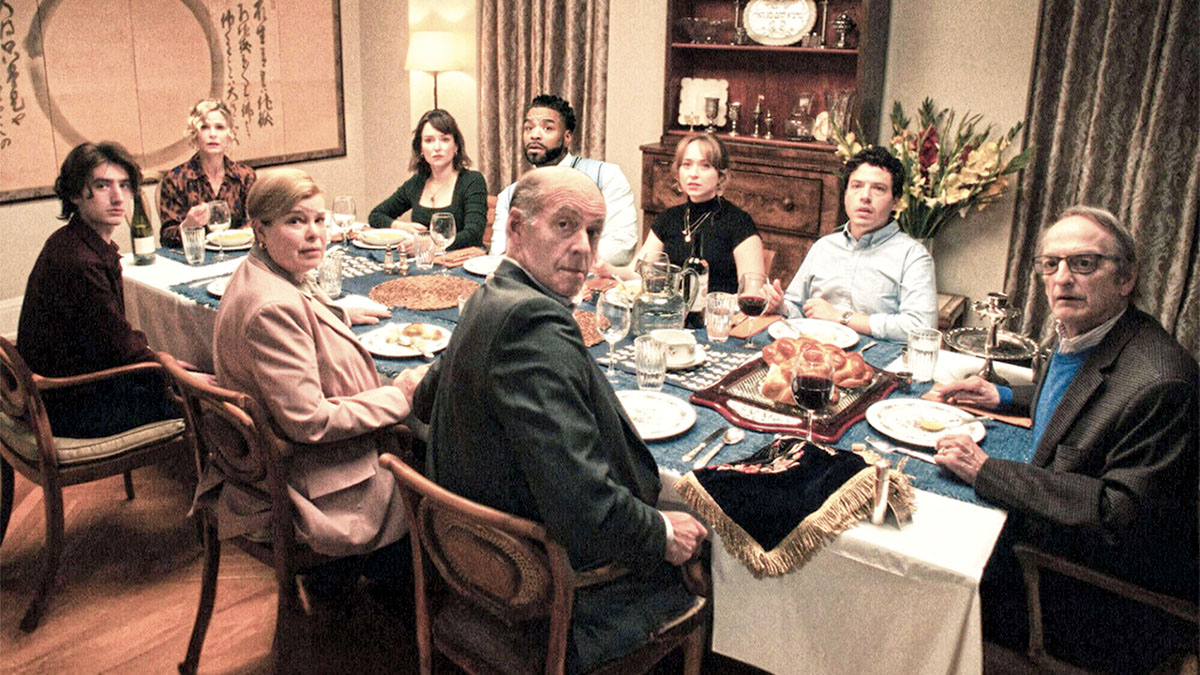
Rep. Ilhan Omar (D-Minn.) said she wanted to discuss “the political influence in this country that says it is okay to push for allegiance to a foreign country,” when it comes to supporting Israel.
Omar made her comment on Feb. 27 during a panel with Reps. Rashida Tlaib (D-Mich.), Mark Pocan (D-Wis,) and Pramila Jayapal (D-Wash.) at a progressive town hall at the Busboys and Poets bookstore cafe in Washington D.C. Omar said she was concerned “that a lot of our Jewish colleagues” view her and Tlaib’s criticism of Israel as “anti-Semitic because we are Muslim.
“I’m sensitive when someone says, ‘The words you used Ilhan, are resemblance of intolerance,’ and I am cautious of that and I feel pained by that,” Omar said. “But it’s almost as if, every single time we say something, regardless of what it is we say, that is supposed to be about foreign policy or engagement, our advocacy about ending oppression, or the freeing of every human life and wanting dignity, we get to be labeled something. And that ends the discussion. Because we end up defending that and nobody ever gets to have the broader debate of what is happening with Palestine.”
She added, “I want to talk about the political influence in this country that says it is okay for people to push for allegiance to a foreign country. I want to ask, why is it okay for me to talk about the influence of the NRA, or fossil fuel industries or Big Pharma, and not talk about a powerful lobbying group that is influencing policy?”
Omar also said that she knew several members of Congress who advocated against apartheid in South Africa.
“Now that you have two Muslims who are saying ‘here is a group of people that we want to make sure that they have the dignity that you want everybody else to have,’ we get to be called names and we get to be labeled as hateful.”
In an email sent to the Journal, The Jewish Democratic Council of America said, “We reject the parallels Representative Omar has repeatedly drawn between Israel and apartheid South Africa. We also want to make clear to both Reps. Omar and Tlaib that our denunciation of their recent tweets was completely unrelated to their religion. We celebrate the diversity of Democrats in 116th Congress, but unequivocally oppose the use of anti-Semitic tropes. We would have condemned such tweets from any member of Congress, regardless of their party or background.”
Simon Wiesenthal Center Associate Rabbi Abraham Cooper told the Journal that Omar’s remarks suggest she’s “taking the lead in calling American Jews the first people who are potentially guilty of dual loyalty, one of the greatest anti-Semitic canards of all. She’s never going to miss an opportunity to besmirch American Jews and the other Americans who have the audacity to support the alliance between the United States and Israel,” Cooper said. “She’ll never stop demonizing. She’ll use her access to the pulpit to continue to pursue that and she’ll cloak it in the language of human rights, standing up for the oppressed and, by the very definition of her statements, to always try to put distance between the American Jewish community and other Americans, and continue to falsely demonize Israel as an apartheid state.”
On Feb. 10, Omar tweeted, “It’s all about the Benjamins baby,” in response to House Minority Leader Kevin McCarthy (R-Calif.) calling for the House Democratic leadership to take action against Omar over her statements about Israel. When Forward Editor Batya Ungar-Sargon asked Omar who she “thinks is paying American politics to be pro-Israel,” Omar responded, “AIPAC!” The next day, Omar “unequivocally” apologized in a statement.
Omar’s office did not respond to the Journal’s request for comment.
UPDATE: The Anti-Defamation League tweeted:
This is not just disturbing, but seems to be part of a pattern. The charge of dual loyalty has long been used to attack Jews, well before the state of Israel even existed. Here is more about why this matters and why it needs to end: https://t.co/HUYOm0i6uZ https://t.co/VxdB3cY6eN
— ADL (@ADL) March 1, 2019

































 More news and opinions than at a Shabbat dinner, right in your inbox.
More news and opinions than at a Shabbat dinner, right in your inbox.